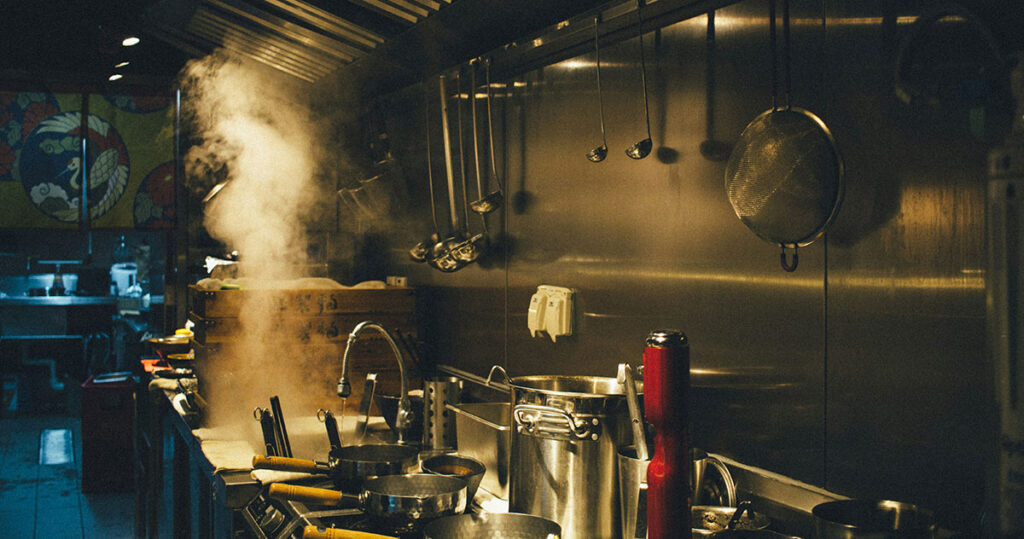We’ve talked recently about safe disposal of oils and grease at home – but if you own or run a commercial kitchen, this is a critical issue on a larger scale.
Incorrect management of food waste could cost your business significantly, which is why grease traps are an essential part of drain maintenance.
What are grease traps?
These are part of your professional kitchen infrastructure – a key component in keeping things running smoothly and safely.
A grease trap is a device that works to capture and separate fats, oils and greases (FOG) from wastewater to prevent it going down the drain.
This stops it entering the sewage system as liquid and later solidifying to cause blockages, damage or even forming fatbergs.
It does this by slowing the flow of water so that FOG can solidify and float to the top, allowing the water to enter the drain separately and safely.
Why do I need grease traps?
Apart from providing protection against blockages and overflows that could harm your business, grease traps make environmental sense.
Pollution of water sources by kitchen waste can threaten ecosystems and wildlife, which can be avoided with proper installation and maintenance.
There are also several pieces of UK legislation covering the use of grease traps and their importance in commercial kitchen drain maintenance.
Building Act 1984
Section 59 of this long-established law grants local authorities the ‘power to require satisfactory drainage’ of buildings.
Obviously, this can be interpreted in different ways by councils but the absence of grease traps could prove costly.
Food Safety Act 1990
Local authorities can inspect commercial kitchens to assess any potential hygiene problems resulting from FOG’s.
Any such failures could result in ‘prosecution or an emergency prohibition order preventing trading from the premises’.
Environmental Protection (Duty of Care) Regulations 1991
These laws require commercial kitchens to have FOG waste collected by a registered disposal firm and taken to a licensed disposal site.
Accurate documents of these processes must also be maintained in order to avoid potential fines and further costs.
Water Industry Act 1991
Section 111 states it is an offence to ‘discharge into the public sewers any matter, which may interfere with the free flow of wastewater’.
And as above, you may end up liable for further costs associated with investigating and fixing flooding and pollution incidents.
How do grease traps help my business?
The more efficiently your kitchen operates, the fewer disruptions to service you’ll encounter, with more happy customers as a result.
Investing in grease traps and implementing a service plan carried out by commercial sewage treatment specialists in one way to achieve this.
To discuss your business requirements with an experienced professional, please contact us today.
